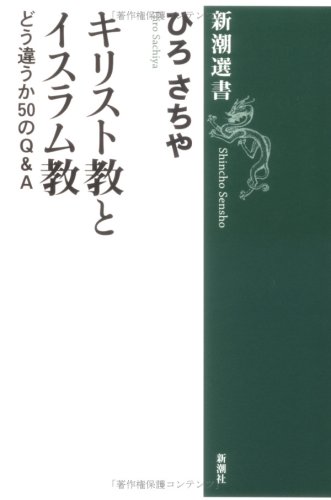
オリンピック
今日、オリンピックの開会式がありました。「オリンピック」の性格や開催の是非などについては、書きません。
なぜ、フランス語と英語と日本語でアナウンスするのか、わかりませんでした。
200以上の国や地域の選手団が入場しましたが、結構知らない国名がありました。はじめから知らなかった国名もあり、国名が変わった国も結構ありました。独立したり、分裂したり様々です。王様が国名を変えちゃったという国もありました。
なんか、「国(国家)」を固定的(あるいは絶対的)なものだと思っている私の感覚は日本的なもののようですね。
沖縄の人にとっては違うのかもしれません。沖縄は明治時代まで琉球王国があったし、戦後もアメリカの支配下にありましたから。
私たちの文化は、何文化?
日付が替わって、今日は土曜日です。一週間が7日だというのは当たり前じゃないです。西暦だって当たり前じゃない。でも「令和」とか面倒です。西暦に統一すればいいのに、って思ってしまいます。
普段は十進法を使いながらも、時計は12時間(24時間)。コンピューターでは16進法(基本は「0」と「1」、オンとオフの2進法)です。様々な単位でも、結構やっていけるもんです。
スポーツで、「1分12秒13」とか当たり前に使っていましたが、分や秒は60進法、コンマ以下は10進法ですね。
仏教の影響や中国文化の影響も大きいですが、キリスト教文化の影響はわずか百数十年なのに、なんかそれが絶対的な気がするのは、前記のように日本では国を固定的に考えるからかもしれません。
グレゴリオ暦を使っていても、神父と牧師の違いもよくわかっていない私の文化って、何文化なのでしょうか。
知るということ
日本文化を知るということは、日本文化を知識の「対象」とすることです。対象化は分節化です。
「りんご」を知るということは、まずりんごを他のものから区別しなければなりません。ほかの果物から、果物を他の植物から、植物を生命から、生命を・・・、という作業が必要です。これは分類そのもので、分類の仕方は文化によって異なります。分類そのものが文化だ、と言ってもいいかもしれません。
分節化(区別すること)によって、他と比較することができます。「りんご」を説明するためには「赤くて」「甘くて」「丸くて」等の言葉を使いますが、そのためには「赤くないもの」「甘くないもの」「丸くないもの」を知らなければなりません。ところが、そうやって「りんご」を説明したあとは「りんご以外のもの」つまり「りんごをりんごたらしめているもの」の存在を忘れてしまって「りんごはもともとりんごだ」と思ってしまいます。
日本文化も日本以外の国や文化を知らなければ「日本文化」などという単語に意味はありません。「日本」も「文化」も必要ないのです。
「井の中の蛙」は「大海」を知らないのではなく、自分が「井の中」にいることも知らないのです。
絶対視
逆に、「日本」のこと「文化」のことを知ろうとするならば、それを絶対視してはいけないということです。ところが、どうも私(たち)は自分を中心に考えてしまいます。自分と他人、日本と世界、人間と動物・・・、最も中心にあるのは自分です。
「自分が中心なのは当たり前でしょ」「認識の主体なんだから」という人もいると思います。「ジコチュー(自己中)」という意味ではありません。「善悪」の問題でもありません。そういう文化の中に私が住んでいるということです。この文化では自分(自我)が絶対なのです。その絶対的な自己を前提として、他人や他の国等(民主主義、教育、道徳、なども)を考える文化です。「親孝行をしろ」とか、「隣人を愛せ」とか、「他人を目的として扱え」とか、すべてその前提は「自我の肯定」です。
日本には「滅私奉公」という中国からの文化がありますが、「私」がなくなれば「公」もなくなるから不可能です。
前述のように、他の国を知らなければ、自分の国を考えることはないし、「国」という言葉すら必要ないのですが、他の国を知ることは必ずしも自分の国を絶対視することではありません。「みかん」を知ることと、「りんご」を絶対視することは同じではないのです。自分の国を絶対視する契機には「自己(自我)」があります。
西洋の歴史
西洋の歴史はその「自我(自己)」、言い換えれば「理性」や「論理」を確立しようという歴史であり、同時に「自我」確立(絶対化)の阻止、あるいは乗り越えを計る「うねりの歴史」のような気がします。理性と感情、論理と倫理、競争と調和、多神教の神と一神教の神、天動説と地動説、「我思う故に我あり」と「他人を目的とせよ」・・・
それらの運動は、その思想を受け継いだ地方の風土、風習とともに変化していきました。砂漠・海辺、農業・牧畜、生産(狩猟採集)・交易、都市と地方等々。
砂漠の文化と森の文化。目の文化と耳の文化
中北部ヨーロッパ、地中海沿岸も農業が中心だったのではないでしょうか。それにくらべて、中東は牧畜の比重が大きかったように思います。その違いが文化にも影響を与えました。古典ギリシア(多神教)の哲学は、一神教の砂漠の宗教と出会うことで一つの危機を迎えました。それで成り立ったのが、古典ギリシアの哲学だと思います。
そして、古典ギリシャの哲学は忘れられます。中東のキリスト教とともに西洋で古典ギリシアの哲学が再発見されます。古典ギリシアの哲学、プラトンやアリストテレスの哲学はもともと「私(自我)」の要素があったのでヘブライズムを受け入れることができました。というか、前述のようにヘブライズムを受け入れる中で古典ギリシア哲学は成立したのです。
しかし、一神教はなかなか受け入れられません。古代ローマでも、なかなかキリスト教が受け入れられることはありませんでした。農業中心のヨーロッパにとってはキリスト教の神と多神教が共存しあっていました。いまでも、西洋では(アメリカを除いて)地域に神様が残っているのではないでしょうか(日本のように)。多分、ローマ帝国の勢力がもう少し小さければ、ヨーロッパの思考は全く違っていたと思います。
中世から近世にかけて、そして近代に於いても(そして現在まで)ヨーロッパは倫理と論理のせめぎあいが続きます。自然と人間、他者と自己との対立です。自然は克服すべきものとして、人間(といってもそれは自分であり、男であり、自国ですが)に対峙します。
イスラムにとっても、自然は人間に対峙するものですが、その自然は「克服できるもの」ではなかったのだと思います。いくら気に入らなかったとしても、イスラムにとっては自然(神)と共存せざるを得なかったのだと想像します。
別の「あたりまえ」
著者の意図は「一つには・・・われわれが「あたりまえ」と思っていることの多くが、たんに西洋=キリスト教だけが採用している「あたりまえ」でしかないこと。(LF)もう一つは・・・結局は同じことになりますが、世界にはもっと別の「あたりまえ」があること。」(P.192-193)です。
そして、それは十分に成功していると思うのです。中東戦争を私たちは「遠くの出来事」と捉えているように思います。そして、自分たちの「あたりまえ」が唯一絶対の「あたりまえ」だと思っています。
私は、「グローバルな視点をもつべきだ」とは思いません。「日本には島国根性がある」というのにもにわかには合意できません。日本には日本独自の文化があり、独自の思想の可能性があります。そして、そのためには「あたりまえ」を相対視することが必要です。日本を知るためにはその「あたりまえ」一つ一つを吟味していくことが必要です。
この本はそれに気付かされるとてもいい本だと思います。古い本ですがおすすめします。
〈書抜〉
「宗教」ラテン語"religio"、"religo"(再び結びつける)「「宗教」とは、(LF)ーー神と人間を再び結びつける」(P.22)「仏教でいう”宗教”は、「レリジョン」ではなしに、「宗ーー言語によって表現できない究極の真理」と「教ーー言語によって表現された教え」といった意味です。」(同)
「過去・現在・未来において、世界に起こるいっさいの事柄と人間の行為のすべてが、あらかじめ定まっているという天命思想がイスラム教にはあります。」(P.26)
「筆もつ仕方を教え給う。」(コーラン96章4節)
「また、『コーラン』は、ユダヤ教徒やキリスト教徒を、(LF)ーー「啓典の民」(LF)と呼んで、他の宗教(たとえば仏教)の徒と区別して扱っています。すなわち、偶像崇拝の徒である仏教徒などに対しては、イスラム教の信仰を強制すべきであるが、啓典の民には必ずしもその信仰の放棄を強制しなくてよいとされています。」(P.37)
「イスラム教の考え方では、自分の財産というものは、すべてアッラーの神の恩寵によって得られたものとされています。ですからそれを、生活に困っている人に施すのが、神の恩寵に応えた「善行」になります。しかし、施しにはそのような「善行」としての施しだけじゃなく、「義務」化された施しがあります。イスラム教ではそれを「喜捨」と呼んでいます。」(P.147)
「ーー持っている者は、持っていない者に施す義務がある。(LF)ーー持っていない者は、持っている者から施しを受ける権利がある。」(P.148)
「相手から要求される前に施しをするのが、「善行」の施しです。」(同)
「キリスト教が「義務」化された施しを説かないのは、表面的な行為よりも、内面的な心のほうを重視したからでしょう。と同時に、イスラム教はどちらかといえば共同体ーー教会の項で説明したように、イスラム教では、共同体のことを「ウンマ」とよびますーーの宗教ですが、キリス(FF)ト教は個人の宗教です。」(P148-149)
「イスラム社会においては、女性の身体は手首から先と顔以外はアウラ(恥部)とされています。そして、アウラを自分の夫や家族以外の成人男性に見せてはならないのです。「恥部」についての解釈はちがいますが、「恥部」を他人の男に見せてはならないというのは、どこの国でも同じであって、イスラム社会だけが例外ではありません。」「『コーラン』では顔はアウラとされていませんから、本来はヴェールをつける必要はありません。この風習は、イスラム教以前のものだといいます。」(P.156)
「イスラム教の女性観は、基本的には男女平等だと思います。もちろん、その男児平等は、どこかの国の女権論者とは違って、男性と女性の役割分担を認めた上でのものであることはいうまでもありませ(FF)ん。」(P.157-158)__ははは、微妙。
「離婚する権利は、明確な理由があれば男女双方に認められています。三回の離婚宣言によって、正式に離婚が成立します。けれども、男性には、わりと大きな経済的負担が課せられています。彼らは結婚のとき、マフルと呼ばれる結納金の額を契約します。この結納金は結婚前に男性側から女性側に支払われますが、同時に離婚時に支払われるマフルも決めておきます。この離婚時のマフルは、離婚宣言によって離婚が成立すると同時に支払わなければなりません。この金額は相当高額に定められているので、この金が惜しかったり、この金がないの(FF)で離婚できない男性が多いといいます。」(P.160-161)
「キリスト教では子どもを、弱くて不完全な存在と見ています。じつはそれ故にこそ、子どもは神から特別な寵愛をうけているのです。」(P.161)
「キリスト教の教育では、懲戒ということが重要視されているようです。子どもは未完成であるということは、いわば動物的段階にあるのであって、これを人間にするためには、調教師が動物を調教するように、鞭が必要だというわけです。やはりキルスト教は、牧畜民族の宗教なんですね。」(P.162)
「『コーラン』には明確な規定はないのですが、イスラム法によると満十五歳で成人に達したとされます。」(P.163)
「十七世紀、フランスの数学者で物理学者・哲学者であったパスカルは、その著『パンセ』の中で、キリスト教の「神」を知るには「賭け」が必要だと言っています。すなわち、「神は存在するか、存在しないか」は、われわれの理性では決定できないのですから、われわれはどちらかに賭けるわけです。」(P.179)「いや、たんにキリスト教者ばかりではなく、ユダヤ教徒やイスラム教徒にも通ずる精神、一神教の精神だと思います。」(P.180)
「しかし、いくらうまい方法を考案しても、結果的にはイスラム教徒は商業の面で大きく立ち遅れてしまいました。そして、ユダヤ教徒をして、金融業の独占に追いやることになってしまったのです。」(P.182)
「キリスト教において、利子取得が公然と認められたのは、宗教改革以後のことです。十六世紀のフランスの宗教改革者のカルヴァンが利子を公認し、イギリスではヘンリー八世が一五四五年に年10%以内の利子取得を発布しました。ただし、カトリック教会が利子を容認したのは、十九世紀になってのことです。」(P.183)__nota bene!!
「遊牧民族のあいだには、(LF)「強い者が遊牧し、弱い者が耕す」(LF)といった格言があります。遊牧民族は農耕を軽蔑していたのです。したがって、もともと遊牧民族の宗教であったイスラム教には、「勤勉」を美徳とする思想は希薄でありました。(LF)なぜなら、農業にあってこそ、勤勉は美徳になります。農業では、働けば働くほど、原則として収入がふえますから。」(P.185)
「初期のイスラム教では、墓参りは、原則として禁じられていました。」(P.187)
「これは、身体の甦りの信仰と結びついています。しかし、教会墓地への埋葬が限界に達した十九世紀ごろから、キリスト教各国で火葬が少しずつ増えてきたようです。」(P.188)
「一つには・・・われわれが「あたりまえ」と思っていることの多くが、たんに西洋=キリスト教だけが採用している「あたりまえ」でしかないこと。(LF)もう一つは・・・結局は同じことになりますが、世界にはもっと別の「あたりまえ」があ(FF)ること。」(P.192-193)
⟨impressions⟩
Olympic
Today, there was the opening ceremony of the Olympic Games. I will not write about the nature of the "Olympic Games" or the pros and cons of holding it.
I didn't understand why the announcement was made in French, English and Japanese.
Athletes from more than 200 countries and regions entered, but there were some country names that I didn't quite know. There were some country names that I didn't know from the beginning, and there were quite a few countries where the country names changed. It can be independent or divided. In some countries, the king changed the name of the country.
Somehow, my feeling of thinking that "country (nation)" is fixed (or absolute) seems to be Japanese.
It may be different for Okinawans. Okinawa had the Ryukyu Kingdom until the Meiji era, and was under the control of the United States even after the war.
What is our culture?
The date has changed and today is Saturday. It's not natural that a week is 7 days. The Christian era is not natural. But "Reiwa" is troublesome. I wonder if it should be unified in the Christian era.
Although I usually use the decimal system, the clock is 12 hours (24 hours). On a computer, it is hexadecimal (basically "0" and "1", on and off binary). You can do quite a lot with various units.
In sports, I used to use "1 minute 12 seconds 13" as a matter of course, but minutes and seconds are in sexagesimal, and commas and below are in decimal.
The influence of Buddhism and Chinese culture is also great, but the influence of Christian culture is only a hundred and several decades, but I feel that it is absolute, as mentioned above, in Japan. It may be because I think fixedly.
What kind of culture is my culture that uses the Gregorian calendar but does not understand the difference between a priest and a pastor?
To know
To know Japanese culture is to make Japanese culture the "object" of knowledge. Targeting is segmentation.
To know an "apple", you must first distinguish it from others. It is necessary to work from other fruits, fruits from other plants, plants from life, life ... This is the classification itself, and the way it is classified depends on the culture. It may be said that the classification itself is a culture.
By segmenting (distinguishing), you can compare with others. To describe "apples", we use words such as "red", "sweet", and "round", but to do so, we must know "non-red", "non-sweet", and "non-round". Must be. However, after explaining "apples" in this way, I forget the existence of "things other than apples," that is, "things that make apples apples," and think that "apples are originally apples."
The word "Japanese culture" has no meaning unless you know the countries and cultures other than Japan. There is no need for "Japan" or "culture".
The "frog in the well" does not know the "ocean", nor does he know that he is in the "well".
Absolute vision
On the contrary, if you want to know about "Japan" and "culture", you should never look at it. However, I (we) think about myself. I and others, Japan and the world, humans and animals ... I am the most central.
I think there are people who say, "It's natural that I'm the center," and "I'm the subject of recognition." It does not mean "jikochu (selfish)". It is not a matter of "good and evil". It means that I live in that kind of culture. In this culture, you (ego) are absolute. It is a culture that considers other people and other countries (democracy, education, morals, etc.) on the premise of that absolute self. The premise is "affirmation of the ego", such as "do filial piety", "love your neighbor", and "treat for the purpose of others".
Japan has a culture from China called "destructive private service", but it is impossible because if "I" disappears, "public" also disappears.
As mentioned above, if you don't know another country, you don't think about your own country, and you don't even need the word "country", but knowing another country is not always your own country. It is not an absolute view of. Knowing "mandarin oranges" is not the same as looking at "apples" absolutely. There is a "self" as an opportunity to absolutely see your own country.
Western history
Western history is the history of establishing the "ego (self)", in other words, "reason" and "logic", and at the same time, preventing or overcoming the establishment (absolute) of the "ego". It feels like "history of swell". Reason and emotion, logic and ethics, competition and harmony, polytheistic god and monotheistic god, geocentric theory and heliocentric theory, "I am because I think" and "Aim for others" ...
These movements have changed with the local climate and customs that inherited that idea. Desert / seaside, agriculture / livestock, production (hunter-gatherer) / trade, cities and regions, etc.
Desert culture and forest culture. Eye culture and ear culture
I think agriculture was the main focus in central and northern Europe and the Mediterranean coast. Compared to that, I think that the weight of livestock farming was large in the Middle East. The difference also influenced the culture. Classical Greek (polytheistic) philosophy faced a crisis when it encountered a monotheistic desert religion. I think that was the basis of classical Greek philosophy.
And the classical Greek philosophy is forgotten. Along with Christianity in the Middle East, classical Greek philosophy is rediscovered in the West. The classical Greek philosophy, the philosophy of Platons and Aristotle, originally had an element of "I (ego)", so I was able to accept Hebraism. In fact, as mentioned above, the classical Greek philosophy was established while accepting Hebraism.
However, monotheism is not easily accepted. Even in ancient Rome, Christianity was not easily accepted. For agriculture-centered Europe, Christian gods and polytheism coexisted. Even now, in the West (except for the United States), God may still remain in the area (like Japan). Perhaps if the Roman Empire were a little smaller, European thinking would have been completely different.
Europe continues to struggle between ethics and logic from the Middle Ages to the early modern period, and even in modern times (and to this day). It is a conflict between nature and human beings, and between others and self. Nature confronts human beings (although it is oneself, a man, one's own country) as something to be overcome.
For Islam, nature confronts human beings, but I think that nature was not something that could be overcome. No matter how much I don't like it, I imagine that Islam had to coexist with nature (God).
Another "natural"
The author's intention is "For one thing ... many of the things we take for granted are just" natural "adopted by Western = Christian only . It's just that. (LF) The other thing is ... it will be the same after all, but there is another "natural" in the world. "(P.192-193).
And I think it's successful enough. I think we see the Middle East War as a "distant event." And I think that our "natural" is the only absolute "natural".
I don't think "you should have a global perspective." I can't quite agree that "Japan has an island nation". Japan has its own culture and may have its own ideas. And for that purpose, it is necessary to look at the "natural" relative to each other. In order to know Japan, it is necessary to examine each and every one of the "natural" things.
I think this book is a very good book to notice. It's an old book, but I recommend it.
⟨Extracted⟩
"Religion" Latin "religio", "religo" (reconnecting) "" Religion "is (LF) --- reconnecting God and humans" (P.22) "In Buddhism" "Religion" does not mean "religion" but means "religion-the ultimate truth that cannot be expressed by language" and "teaching-teaching expressed by language". "(same)
"Islam has a mandate idea that everything that happens in the world and human actions in the past, present, and future are predetermined." (P.26)
"Teach me how to hold a brush" (Quran 96: 4)
"The Quran also treats Jews and Christians as (LF)-"People of the Book" (LF) to distinguish them from other religions (eg Buddhism). .. In other words, it is said that Islamic beliefs should be forced on Buddhists who are idol worshipers, but the people of the Book do not necessarily have to abandon their beliefs. (P.37)
"In Islamic thinking, all of your property is obtained by the grace of the God of Allah, so it is best to give it to those who are in need of life. It will be "good deeds" in response to the grace of God. However, there are not only such "good deeds" but also "obligatory" alms. In Islam, it is called "Kiyoku". (P.147)
"--There is a obligation that those who have it give to those who do not have it. (LF) --- Those who do not have the grant from those who have Right There is. ”(P.148)
"Giving before the other party requests is the giving of" good deeds ". "(same)
"Christianity does not preach" obligatory "giving because it emphasizes the inner mind rather than the superficial act. At the same time, Islam is rather a religion of the community-as explained in the church section, in Islam, the community is called "umma" -but Kiris (FF) To religion is an individual religion. Islam. (P148-149)
"In Islamic society, a woman's body is considered to be an aura (shame) except for the wrist and face, and the aura must not be shown to adult men other than her husband and family. The interpretation of "shame" is different, but it is the same in every country that "shame" should not be shown to another man, and Islamic society is no exception. "In the Quran, the face is not aura, so it is not necessary to put on a veil. This custom is said to be pre-Islamic." (P.156)
"I think Islam's view of women is basically gender equality. Of course, boy equality is different from women's rights theorists in some countries, and the division of roles between men and women. It goes without saying that it is a thing after acknowledging that (FF). "(P.157-158) __ is subtle.
"The right to divorce is granted to both men and women for obvious reasons. Three divorce declarations formally establish a divorce, but for men a relatively large economy They are subject to a burden. At the time of marriage, they contract an amount of a deposit called Mahr. This deposit is paid from the male side to the female side before marriage, but at the same time, Mahr is paid at the time of divorce. I also decide. This divorce mahr must be paid at the same time as the divorce is completed by the divorce declaration. This amount is set to a fairly high amount, so this money is regrettable or there is no money It is said that there are many men who cannot divorce because of (FF). ”(P.160-161)
"Christianity sees children as weak and imperfect. That is why they receive special love from God." (P.161)
"It seems that discipline is important in Christian education. The fact that a child is incomplete is, so to speak, at the animal stage, in order to make it human. You need a whip just like a trainer trains an animal. After all, Kirst religion is a religion of the herder race. "(P.162)
"There is no clear provision in the'Quran', but according to Islamic law, it is said that he reached the age of majority at the age of 15" (P.163).
"Pascal, a French mathematician, physicist and philosopher in the seventeenth century," bets "to know the Christian" God "in his book" Pensées. " Says that you need. In other words, "whether God exists or does not exist" cannot be determined by our reason, so we bet on either. (P.179) "No, I think it's a spirit that is familiar not only to Christians but also to Jews and Islam, a spirit of monotheism." (P.180)
"But no matter how good the method was devised, the result was that Muslims were far behind in commerce, and to make Jews a monopoly on the financial industry. It has become. ”(P.182)
"In Christianity, interest acquisition was publicly recognized after religious reform. Calvin, a French religious reformer in the 16th century, officially recognized interest, and Henry VIII in England. Promulgated interest acquisition within 10% per year in 1545, but it was not until the nineteenth century that the Catholic Church accepted interest. ”(P.183) __nota bene! !!
"Among the nomadic peoples, there are sayings such as (LF)" The strong ones nomad and the weak ones cultivate "(LF). Nomads despised farming. Therefore, Islam, which was originally a nomadic religion, had little idea of "hard work" as a virtue. (LF) Because diligence is a virtue in agriculture. In agriculture, the more you work, the more income you earn in principle. (P.185)
"In early Islam, visiting graves was prohibited in principle." (P.187)
"This is associated with the belief in the resurrection of the body. However, it seems that cremation has gradually increased in Christian countries since the 19th century when burial in church graveyards reached its limit. . ”(P.188)
"For one thing ... many of the things we take for granted are just the" natural "adopted by Western = Christian __. .. (LF) The other thing is ... It will be the same in the end, but there is another "natural" in the world (FF). (P.192-193)
現代世界の動向の鍵を握るキリスト教とイスラム教は、ユダヤ教から生まれた兄弟宗教だが、これほど対蹠的で仲の悪い兄弟も珍しい。しかるに多くの日本人は、キリスト教的考え方には馴染んでいるが、イスラム教についてはほとんど知識がない。これでは、われわれの外国理解、異文化理解は歪んだものになる。本書では、両宗教を比較することによってそれぞれの特質を学び、われわれの考えをより豊かにしようと試みた。


